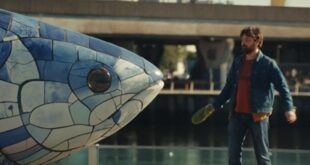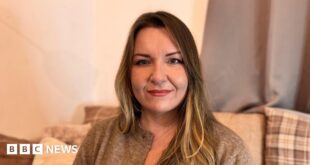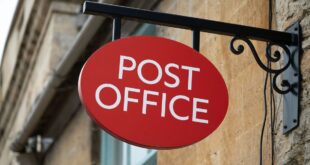ST. JOHN’S, N.L. — Newfoundland and Labrador will become the fourth province to go to the polls during the COVID-19 pandemic after Premier Andrew Furey called an election for Feb. 13.
Furey’s request to the province’s chief justice Friday to dissolve the legislature follows two days of free-flowing funding announcements from the governing minority Liberals.
The Liberal leader is hoping his party will continue the trend established in previous pandemic elections in Saskatchewan, British Columbia and New Brunswick, where the incumbent parties were all re-elected with majorities.
It will also be the first provincial campaign for Furey, a surgeon, since he was elected Liberal leader in August, replacing premier Dwight Ball.
“This election will be about your choice on leadership,” Furey told reporters. “Who you want to lead the province through the pandemic. Who you want to lead it through the economic challenge. Who you want to sit at the table with the federal Liberal government to strike a new deal.”
He said he chose a Saturday for the vote to give people time to get to the polls and to avoid crowding at polling stations during the pandemic.
Furey’s biggest competition will come from the Opposition Progressive Conservatives, led by lawyer Ches Crosbie, son of the famously outspoken politician John Crosbie.
In an interview Friday, the party’s campaign chair, Shawn Skinner, said COVID-19 has made it tough to raise funds. People in the province don’t have as much cash as they normally do, and large fundraising events aren’t allowed under public health guidelines.
“We’re probably down 20 to 25 per cent of what we would normally raise,” he said.
The pandemic also means the party won’t have a tour bus heading across the province this time. “You’d be a driving petri dish,” Skinner said. Instead, the campaign will rely more on livestreamed events, he added. Candidates will be knocking on doors, but they’ll stand back and give people appropriate space when they answer, he said.
The provincial NDP, led by economist Alison Coffin, made gains in the last general election in May 2019, winning three seats in the legislature after running just 14 candidates in the province’s 40 ridings.
Kyle Rees, the NDP’s campaign chairman, said the party has been preparing for an election call and expects to have at least 30 candidates across the province’s 40 ridings.
At dissolution, the Liberals held 19 seats, the Progressive Conservatives held 15, the NDP had three and there were three Independents.
The election comes at a time of deep economic trouble for the province, which is suffering from the struggling oil and gas industry. With a population of just over 520,000, Newfoundland and Labrador faces a $1.84-billion deficit and a $16.4-billion net debt.
At the heart of the province’s financial worries are the four offshore oil installations, hundreds of kilometres off the coast of St. John’s. Crashing global oil prices and the COVID-19 pandemic last spring forced shutdowns and delays resulting in hundreds of layoffs.
Thousands more have lost their jobs with the offshoot companies supplying the sector, according to the province’s industry association.
The futures of both the Husky-owned White Rose field and the Suncor-owned Terra Nova field remain uncertain, with both companies saying they could decommission their fields and leave if fortunes don’t change.
Ottawa stepped in last fall with $320-million in aid for the sector, to be parcelled out by the province, but the money has been controversial. Funding offered to companies so far hasn’t come with guarantees of large job numbers or, in the case of Husky, a long-term commitment to see the project through.
In September, Furey assembled an economic recovery team, chaired by Moya Greene, a St. John’s-based businesswoman known for privatizing Britain’s Royal mail postal service. Her appointment, coupled with the province’s towering financial challenges, has many worried the team will recommend austerity measures and sweeping privatization.
A first draft of the team’s proposed plan is due in February, and both of the main opposition parties have said it is irresponsible for Furey to send people to the polls without knowing what they’ll be in for if the Liberals are re-elected.
The province also has a rapidly aging population, spread out over a vast geography, and divided into 275 municipalities, most of them with fewer than 1,000 residents. The growing costs of health care loomed large over the provincial coffers even before the pandemic hit.
This report by The Canadian Press was first published Jan. 15, 2021.



